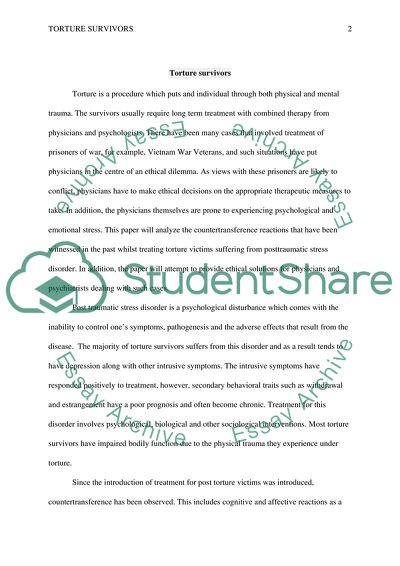Countertransference and ethical principles of torture survivors Essay. https://studentshare.org/medical-science/1798426-countertransference-and-ethical-principles-of-torture-survivors
Countertransference and Ethical Principles of Torture Survivors Essay. https://studentshare.org/medical-science/1798426-countertransference-and-ethical-principles-of-torture-survivors.


